

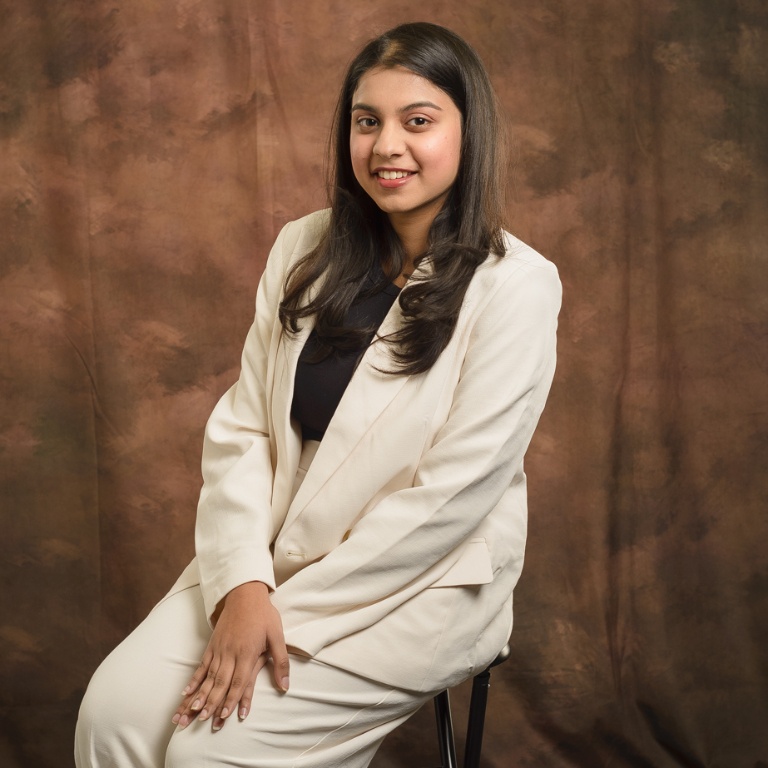
The Center of Excellence for Women & Technology is proud to announce IU senior Anshu Roja Selvamani as the recipient of the Maureen Biggers Leadership Award for Equity and Technology for the 2025 academic year.
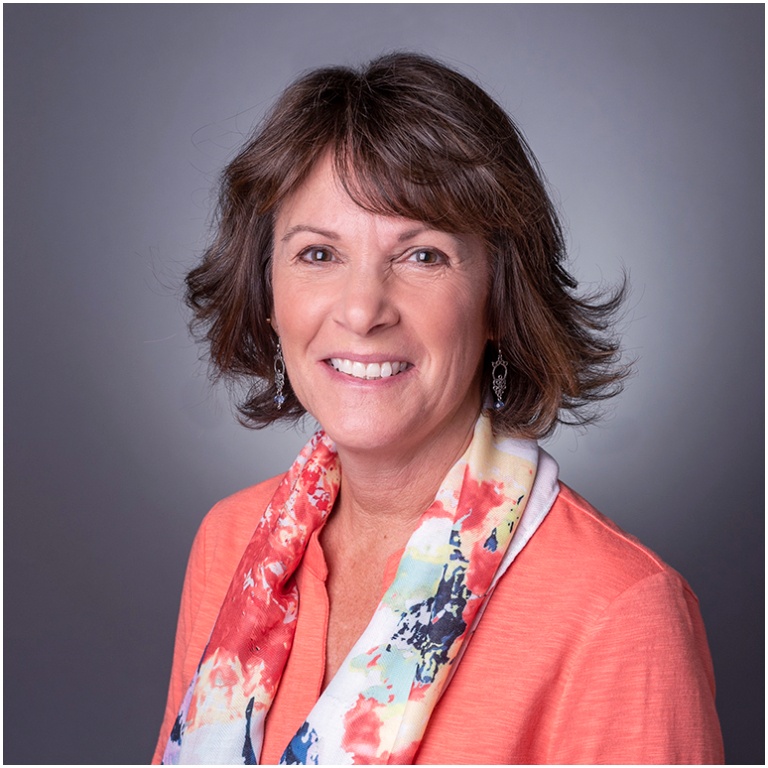

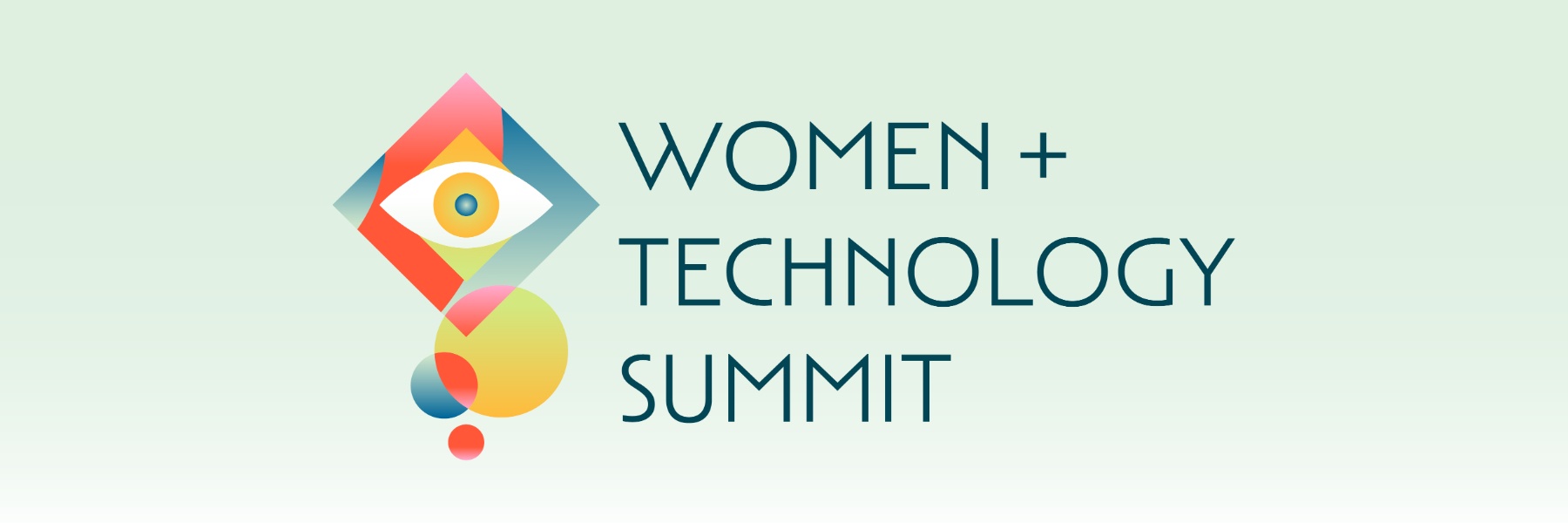


Mastering Media Literacy in the Misinformation Era: How to Evaluate the Media You Consume
Developing strong media literacy skills is crucial for students, as it helps distinguish credible sources from misleading or false information and allows for informed, critical thinking.

The Center of Excellence for Women & Technology is proud to announce IU senior Ashley Steitz as the recipient of the Maureen Biggers Leadership Scholarship for Equity & Tech for the 2024 academic year.
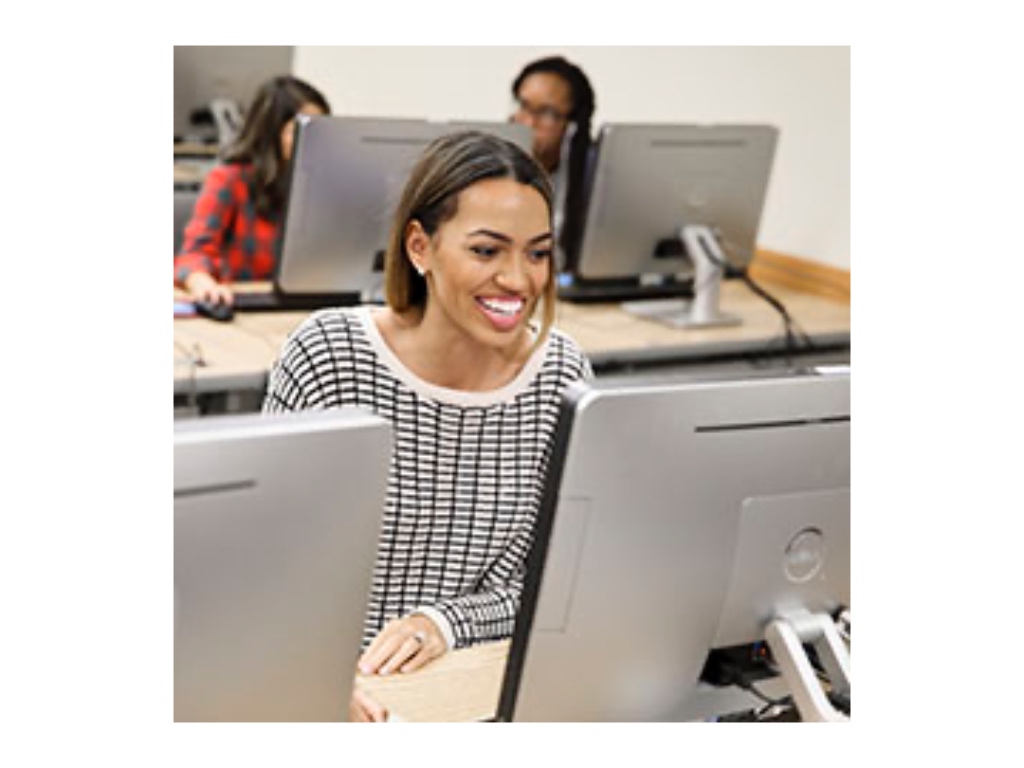
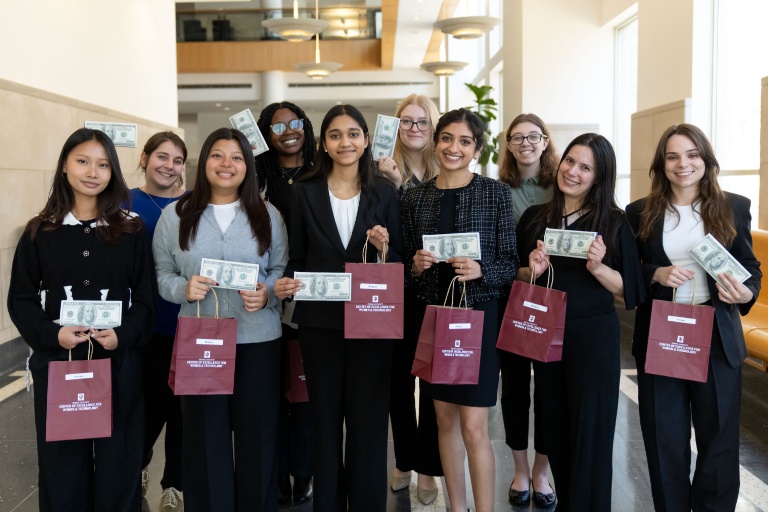
6th Annual Research Hackathon on Women in Business and Technology
Congratulations to the winners of the 2024 Women's Research Hackathon!
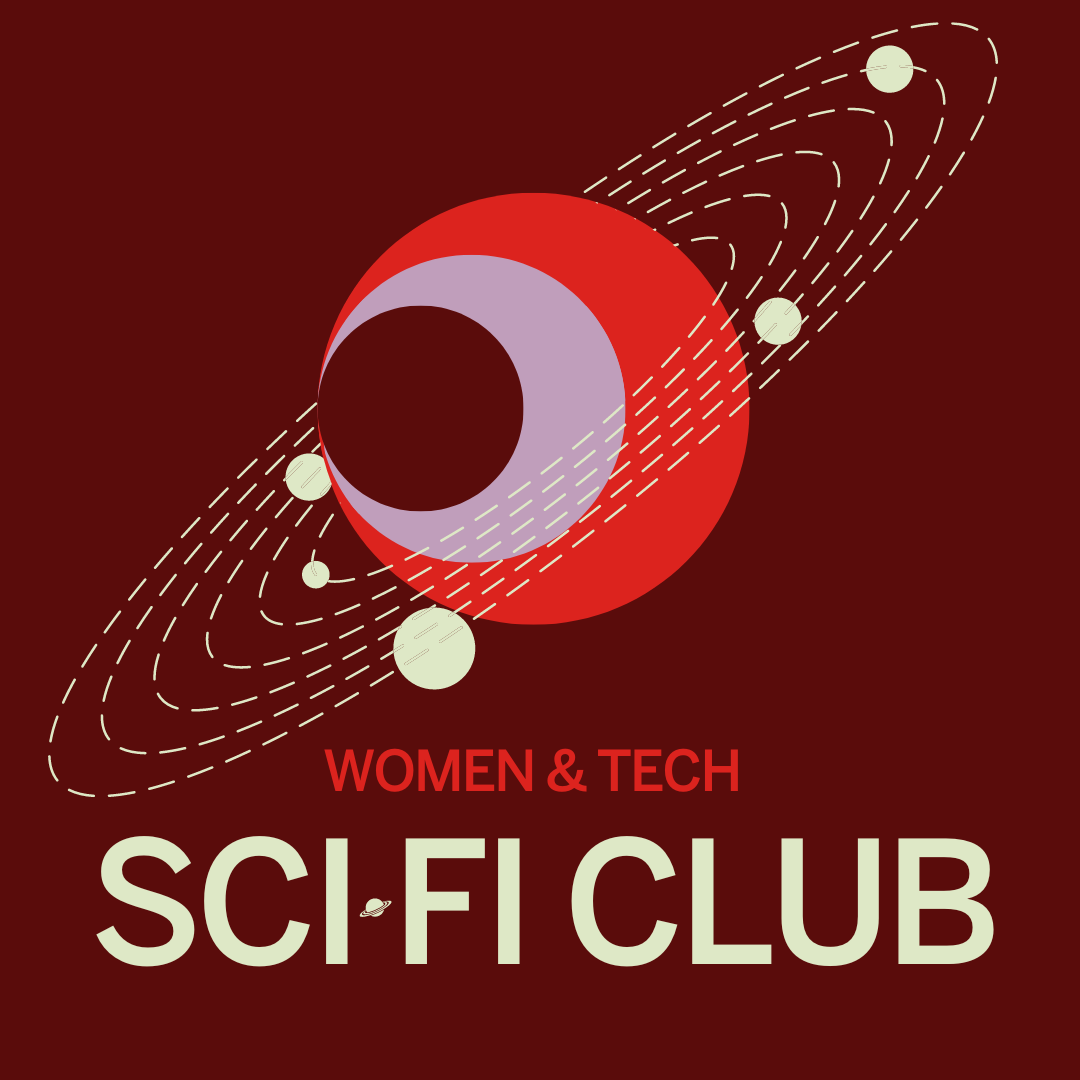
Women & Tech Sci-Fi Club Launches in 2024 to Explore the Intersections of Art, Technology, and Imagination
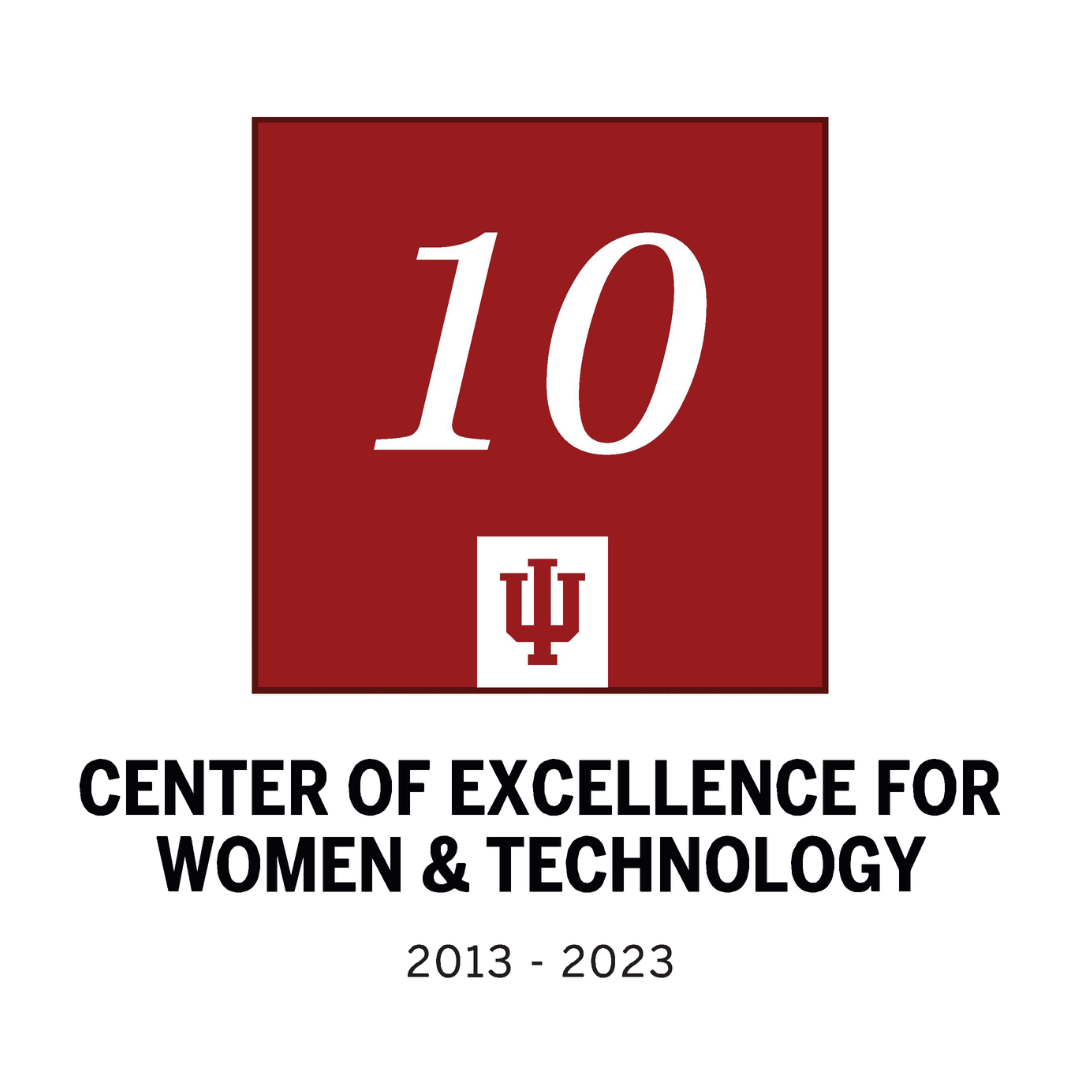
The Center of Excellence for Women & Technology Celebrates 10th Anniversary: A Decade of Empowering Women in Technology and Beyond
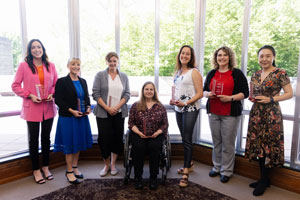
Celebrating our 2023 Outstanding Mentor/Advocate Faculty and Staff Award Winners
On May 16th, The Center of Excellence for Women and Technology honored an exceptional group of faculty and staff with the 2023 Outstanding Mentor/Advocate Awards. Each year, the Center seeks nominations for candidates who mentor, motivate, encourage, and advocate for women across IU, with a special focus on those who nurture the development of technical skills for women.
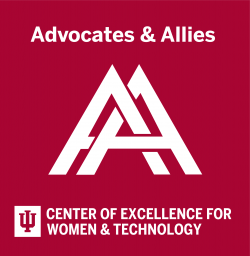
Looking Forward to Future Actions
This year, we have discussed many areas where we all can become better allies and suggested many actions we can take to become more inclusive and equitable in our spaces. For our final Ally Tips of this academic year, we wanted to leave you with action items that can strengthen your allyship this summer and beyond. We have enjoyed learning and growing with you and look forward to seeing you next fall!

Promoting Environmental Justice
April 22nd was Earth Day, and we felt it would be important to talk about environmental justice, an important part of allyship that recognizes the relationship between environmental regulation/protection and systems of oppression, particularly for Communities of Color and women. IU’s recently taken steps to incorporate sustainability on campus, including creating a sustainability literacy curriculum requirement. We overview the history of the movement, the relationship between higher education and environmental justice, and how we can incorporate environmental justice into our allyship.
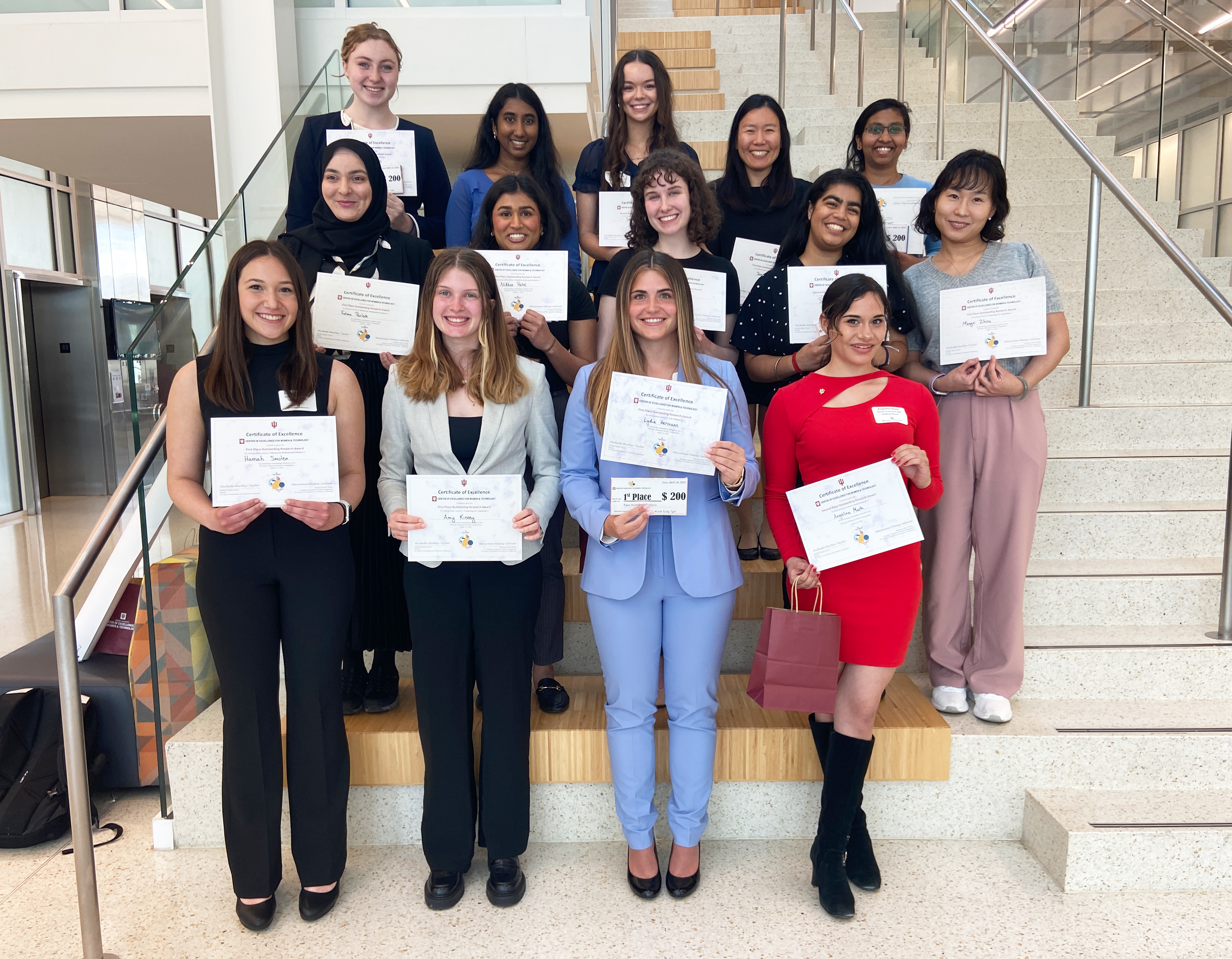
2023 Women's Poster Competition Winners
Congratulations to the winners of the 2023 Women's Research Poster Competition!
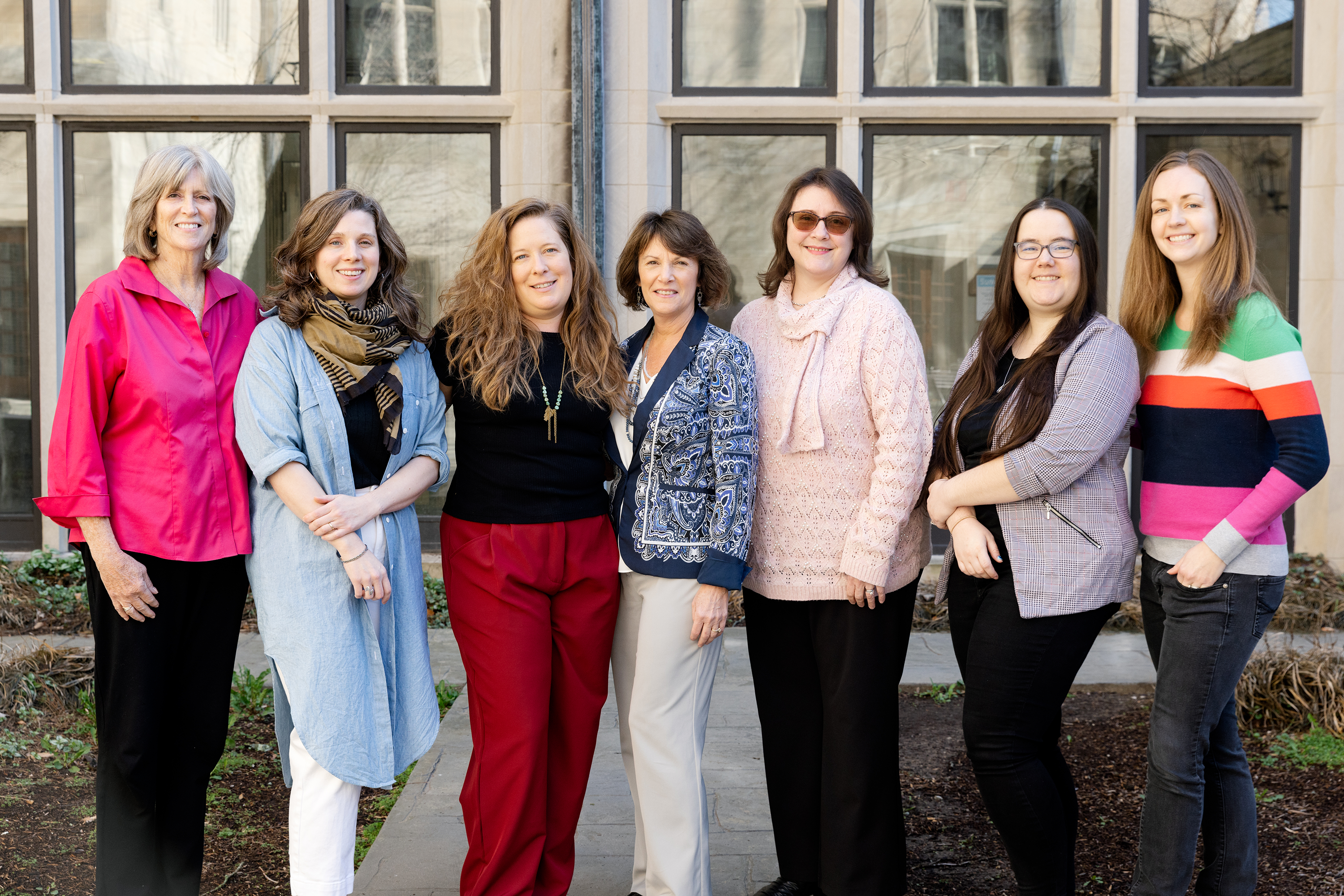
Center of Excellence for Women & Tech receives IT Leadership Team Collaboration award
The Center of Excellence for Women & Tech was honored to receive this year's IT Leadership Team Collaboration at the 2023 IU Statewide IT Conference.

Creating Inclusion for Refugee Women
Of the 20 million refugees living in a country outside their own,1 only 1% enroll in higher education compared to the global average of 36%.2 Recognizing that many must continue life without knowing when they can return home, we wanted to discuss how education is disrupted by displacement, what barriers face refugees in higher education, and how we can be more inclusive to the needs/experiences of people who are refugees. While little research has examined the intersectional experiences of displaced women,3, 4 we must remember displacement and education are complicated by sexism.

AAPI Experiences in Higher Education
In honor of IU celebrating Asian American and Pacific Islander Heritage month in April, we write about the experiences of AAPI people in higher education. We discuss the complicated logic around “AAPI”, anti-Asian racism, and how we can support the AAPI community. For more about AAPIHM and other resources, visit the Asian Culture Center website!

Stopping Sexual Violence in Higher Education
April is Sexual Assault Awareness Month, so we felt it important to discuss the prevalence of discrediting and erasing survivors’ experiences, how STEM fosters sexual violence, and what we can do prevent sexual violence in our lives. Though we are discussing statistics and systemic level understandings of sexual violence, we recognize that this information could be triggering to those who have experienced sexual violence; please proceed with caution if this content may be difficult to process.

We often discuss the idea of inequity as something occurring in the social interactions between people, focusing less on the physical ways inequity operates. We discuss the importance of considering bodily aftereffects of oppression, the many ways that inequity becomes embodied in higher education, and how we can begin to address these issues in our day-to-day work.
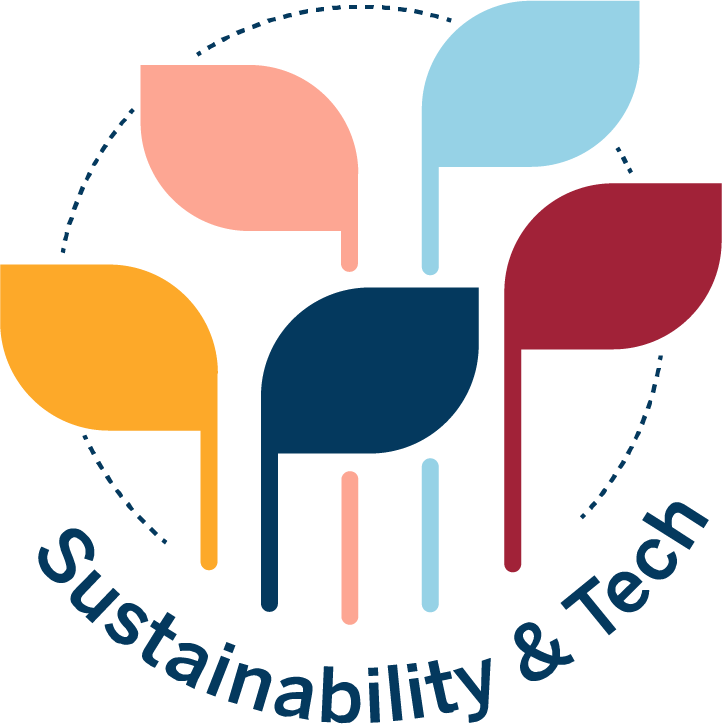
Announcing the Sustainability & Tech Team
This spring, our Center is excited to welcome a new student alliance team, the Sustainability & Tech Team.

Supporting Undocumented Women in Higher Education
As we enter Women’s History Month, we return to our regular conversation We discussed previously the Deferred Action on Childhood Arrivals (DACA) program (including the Trump administration’s rescinding of the program and recent court decisions) and our duty to make higher education a safe and supportive place for undocumented people. This week, we revisit our discussion of racist nativism and documentation status, explore undocumented people’s experiences, and explore ways we can support undocumented/DACAmented people.

Recognizing Women’s History Month
As we enter Women’s History Month, we return to our regular conversation about sexism in higher education, focusing on the narratives around women’s ability, sexism in the classroom, workplace, and beyond, and how we can create a more inclusive space for all women.

Revisiting Emotional Intelligence
Emotional intelligence (EI) is an often under-examined, yet vitally important, skill when it comes to allyship. Being mindful of your emotions is critical to striving towards justice, as the hard work of unlearning prejudice and using your privilege can conjure feelings which have been socialized into us from an early age. We discuss emotions in social justice and equity, EI in daily life, and ways to develop higher EI as an ally.

Recognizing Physical Disability
Physical disability is generally more recognizable than other types of disability, perhaps giving a false impression that inclusion of people with physical disabilities is easier than other types. This is evident when discussions of equity and inclusion only focus on physical accessibility as a means of remedying ableism – an important step but not the last or only one. We discuss portrayals of physical disability in media and how this shapes our perceptions, the experiences of those with physical disabilities, and how we can move beyond narratives of accessibility.
2023 Women's Research Hackathon
Congratulations to the winners of the 2023 Women's Research Hackathon!

Prejudice and structural barriers based on age, otherwise known as ageism, is a deep-set facet of our society. While most frequently directed at older people, ageism can also affect young adults. We discuss latent imagery and stereotypes around age, the presence of ageism in higher education, and methods to validate age diversity and promote age inclusion.

Supporting Black Women Beyond BHM
For Black History Month, we wanted to start with a conversation about the experiences of Black women in higher education. It is important to recognize that higher education is shaped by the intersection of white supremacy and sexism. “Whiteness” and white supremacy within our society is an “ongoing and unfinished history, which orientates bodies in specific directions, affecting how they ‘take up’ spaces . . . and what it is that bodies ‘can do’.”1 As white supremacy intersects with patriarchy, Black women are placed in uniquely difficult positions about ways to act and simply be. Higher education is a space that particularly reproduces these systems in unique ways, undergirding the negative experiences we discuss in these tips.

Our upcoming workshop takes a look at where people fall short when trying to be allies. This week, we decided to share some questions to get people thinking about disconnection between action and impact. Think through these questions, such that you may be more reflective in what you do or say.

Holocaust Remembrance Day is on the 27th, so we highlight antisemitism in higher education and how we can be better allies to Jewish folks in higher education and beyond.

This week, we are looking at one of the most common forms of gender bias – the implicit and explicit devaluation of women. We chat “untitling,” stereotypical perspectives of women’s abilities, how we can make space for the expertise of women, and more!

Ally Resolutions for the New Year
As we begin the Spring semester and a new calendar year, we wanted to provide questions or prompts to help you make resolutions for allyship in the upcoming year. Answer these questions individually or with someone else who is looking to (re)commit to allyship in the following year. Keep your answers somewhere close and regularly return to your answers to ensure you maintain your commitments.

Being Inclusive of All Disability
This past weekend was International Day of Persons with Disabilities. We decided to overview our socialization to disability, the barriers created by ableism in higher education, and moving toward accessibility in our everyday life. Let’s reconsider how we view disability and fight to make the world a more accessible and joyful place!

Advancing Social Class Allyship
This week, we thought that it would be a good idea to discuss a topic that is less visible in conversations about equity and social justice: social class. Higher education has historically excluded the working class, but has been valorized more recently as equalizing the playing field for people of all class backgrounds – but has it really? We unpack how classism still manifests within higher education and how we can do better when it comes to social class equity. Throughout this set of tips, we use a variety of language to describe social class reflecting the diversity of elements constituting social class (and our collective difficulty discussing it). Check out Bourdieu’s (1987) theoretical perspective or this Lumen article for more info.

Approaching Critical Conversations
We recognize that many people will, at some point during upcoming breaks, be visiting family of some sort. While family can be an important source of comfort, social justice is a topic that can be very tense, particularly if our family has not examined their privileges. We encourage you to reflect on how you’ve approached these conversations, what we know about how/why they happen, and ways that you can prepare for future conversations you undertake.

Supporting Transgender People in Higher Education
The recent trend of anti-transgender legislation across the U.S. is a stark reminder of the persistence of transphobia in our society. In recognition of Transgender Day of Remembrance occurring in a few days, we discuss where and how transphobia manifests, the experiences of trans people in higher education (especially trans women), and how we can deconstruct transphobia in our lives.

Rectifying the Unequal Valuation & Distribution of Work in Academia
The unequal distribution and valuation of women’s work – in academia and broadly – is a significant feature of modern sexism. For this set of tips, we outline this phenomenon's relationship to benevolent sexism, how unequal work appears in higher education, and what we can do to stabilize the scales.

Recognizing Native American Heritage Month
November is Native American Heritage Month, so we return to our conversation about Indigenous people as one the most underrepresented communities in higher education - particularly Native women. We discuss how higher education recognizes (and erases) Indigenous peoples, Native experiences in higher education, and what you can do to support Native people in higher education. Check out the First Nation’s Educational & Cultural Center's numerous Indigenous events and initiatives for more!

Creating Inclusive Spaces for Addiction
Since the start of the COVID-19 pandemic, the specter of isolation and suffering has caused mental health to worsen for many people around the world. A particularly concerning outcome of this rise in mental health issues is that of addiction or addictive behaviors,1 which is exacerbated during our upcoming season. We explore the relationship of addiction with systems of oppression, substance use/addiction in higher education, and offer ways to include people who are in recovery or are sober to combat these negative narratives.

Unpacking Weight Bias in Higher Education
This week, we wanted to revisit an underdiscussed topic regarding social justice – weight stigma or “fatphobia.” Weight bias is a negative/stereotypical attitude, belief, and judgement about people because of their weight. While weight bias exists on a spectrum that can include people who are underweight, we are covering biases against plus-sized/fat people because this group predominantly experiences negative attitudes and discriminatory practices.

Mental Illness & Mental Health Awareness
Mental health awareness week begins next week, so this Ally Tips highlights the prevalence of mental illness and mental health issues in higher education. We also discuss bias around mental health and the ways that we can deconstruct barriers for those with mental illness.

For LGBTQ+ History Month, we return to our conversation about cisheteropatriachy, the experiences of LGBTQ+ women in higher education, and the ways our allyship can help deconstruct harmful binaries.

Incorporating Inclusive Language
Our language fundamentally shapes how we view the world, particularly when it comes to power and privilege. This week, we discuss the relationship between language and our cultural views, the different ways language can be exclusionary, and key steps to removing harmful language from your repertoire.

Tackling Islamophobia & Religious Discrimination
We discuss religion/spirituality and religious discrimination, focusing on islamophobia in the U.S. Though religious/spiritual identity can be difficult to talk about, millions of Americans identify as some level of religious or spiritual1 - meaning that not talking about it leaves room for bias and discrimination. Despite women being religious/spiritual at higher rates than men,2 the intersection of religious discrimination and sexism also often goes unexamined. We hope that these tips get you to ask important questions about being a part of a growing religiously diverse country and seeing how this topic affects women. Sincerely,
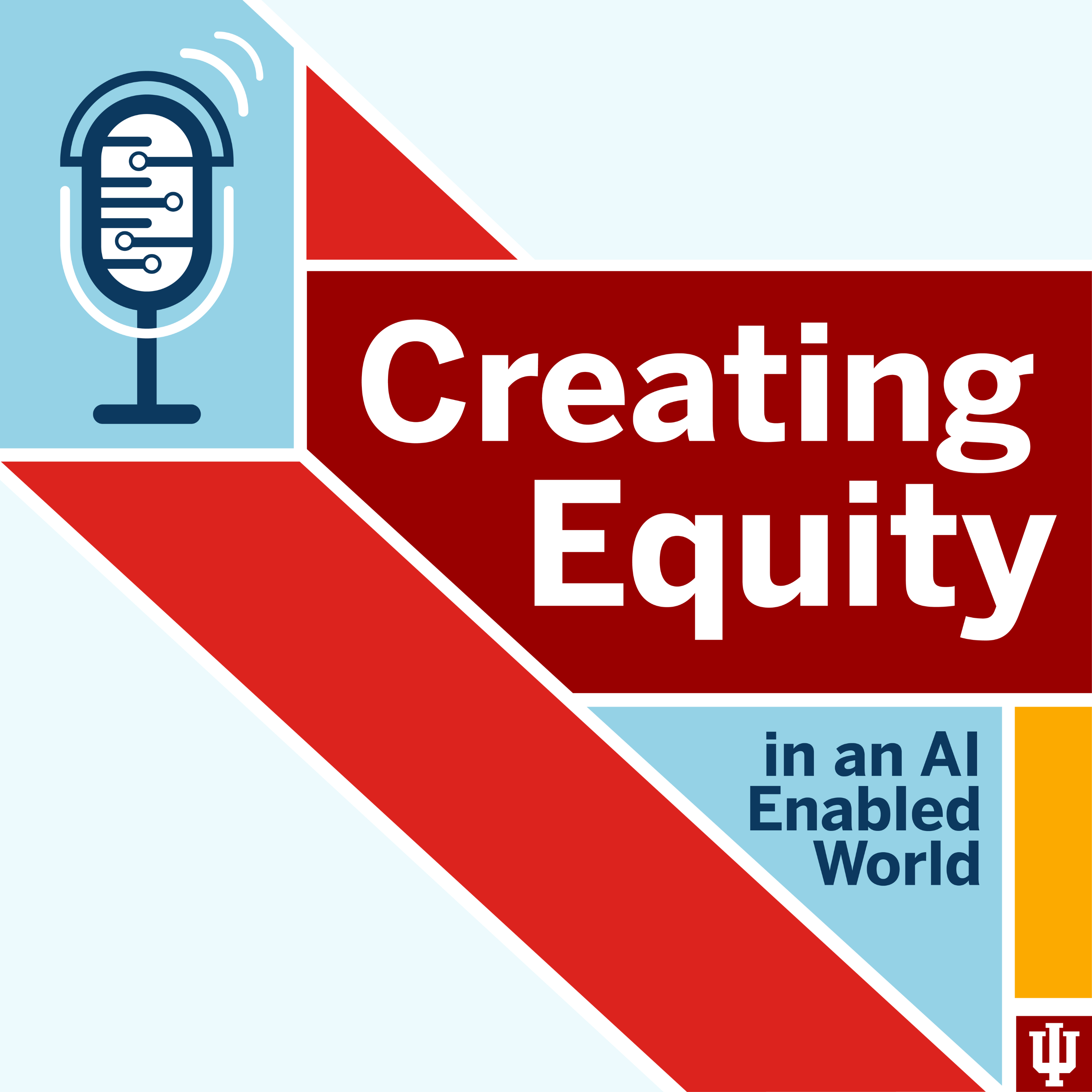
Announcing the Ethical AI Podcast
Join Laurie McRobbie for a new podcast series featuring conversations with IU faculty in different disciplines discussing ethical issues surrounding the use of AI technologies in the classroom, in their research, and generally in their fields of expertise.

Highlighting Hispanic Heritage Month
As Hispanic Heritage Month begins on the 15th, we wanted to take a look at language, experiences, and allyship for Hispanic, Latina, and Chicana people in higher education. La Casa’s website has more information about things happening on campus related to this Month!

Despite the growing number of women across STEM disciplines, there are persistent issues of sexism in the field. We reflect on the language used to describe STEM environments, women's experiences in STEM, and ways to create change that support women in STEM career paths.

Important Introductory Vocabulary for Allies & Advocates
Continuing with last week’s reflection, we are circling back on important language/concepts to understand when we discuss social justice and equity.

